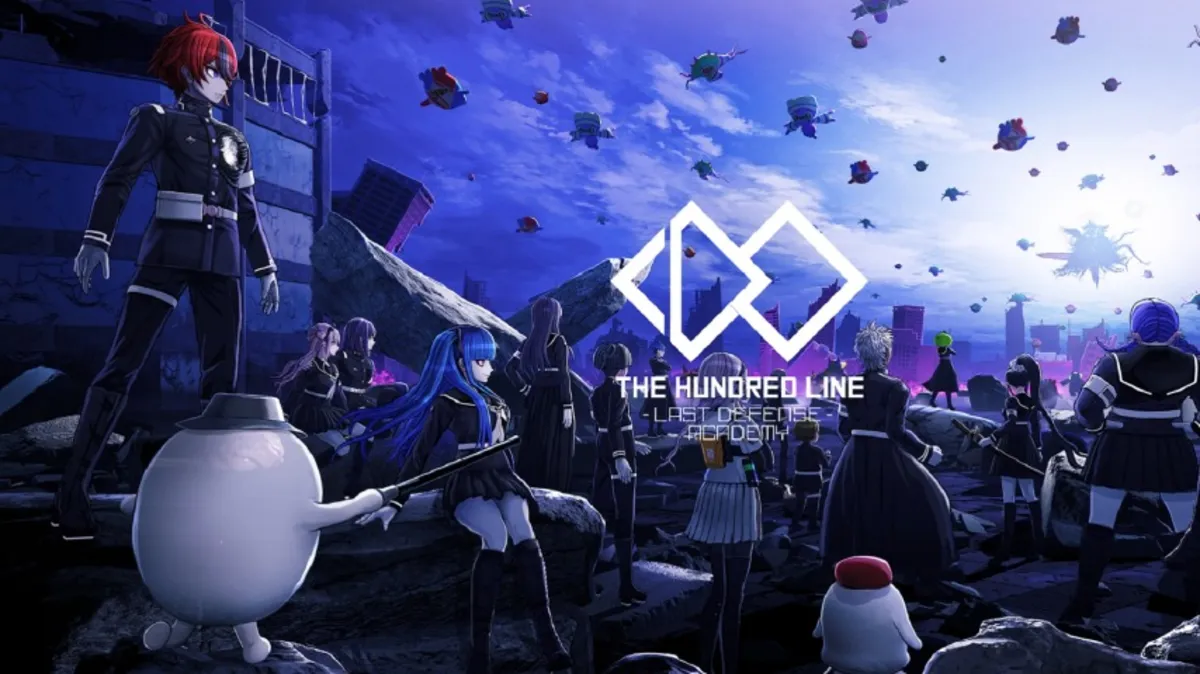
Every Friday, the dedicated staff at A.V. Club dives into the captivating universe of gaming, sharing insights and theories that enrich our beloved hobby. As part of this tradition, we invite you to join the conversation in the comments section, revealing what titles you’re indulging in this weekend and the theories they inspire.
Shamelessness is an underrated quality in art. While restraint is often celebrated for its class and sophistication—ordering delicately from a menu in a high-end restaurant—shamelessness is unapologetic. It indulges in the chaos of fast food, creating something grand, grotesque, and ultimately satisfying. This contrast is vividly embodied in The Hundred Line: Last Defense Academy, a game that embraces its excess with open arms.
The Hundred Line is a collaboration between renowned creators Kazutaka Kodaka, known for the Danganronpa series, and Kotaro Uchikoshi, the mastermind behind Zero Escape and AI: The Somnium Files. My experience with the game is still ongoing, and I find it a deceptively expansive journey. It seems that Kodaka and Uchikoshi have crammed all their various obsessions into this single package, making it a delight for fans of their previous works.
Do you crave themes of teenage angst, killing games, murder mysteries, or meditations on hope and despair? Perhaps you enjoy the occasional touch of anime fanservice or sudden info-dumps reminiscent of recent Wikipedia dives? The Hundred Line offers all this and more, featuring characters that are both exaggerated yet surprisingly relatable, all wrapped in an engaging turn-based tactical gameplay experience.
Over the past two weeks, I’ve found myself losing track of time while immersed in this game, and I still feel like I've only scratched the surface. Kodaka and Uchikoshi, known for their unique storytelling, have created a narrative that challenges the player's perception of choice in the visual novel medium. As the protagonist, Takumi, you must defend the Academy against waves of menacing “Invaders” for 100 days. What happens next? That's where things get tricky, as the game often plays with your expectations.
After approximately 50 hours of gameplay, I’m still unsure how much influence Takumi has over the unfolding crises. The game oscillates between offering real choices and trolling players, keeping you on your toes. It recognizes that many players are familiar with the conventions of its creators’ previous titles and revels in subverting those expectations.
If you find yourself put off by aspects typical in games like this—such as repetitive dialogue, overtly suggestive content, or long-winded exposition—you may not enjoy The Hundred Line as much. While its combat mechanics are reminiscent of tower defense games rather than deeper tactical systems like those found in Final Fantasy Tactics, the narrative complexity and ambition are undeniable. In many ways, it’s akin to 2019’s 13 Sentinels: Aegis Rim, but with a more audacious story.
While I can appreciate restraint in storytelling, I find immense joy in the unrestrained creativity of The Hundred Line. It aspires not only to be a game by Kodaka and Uchikoshi but to encapsulate all the potential games they could create together. Despite the many practical reasons to streamline such a project, I genuinely enjoy my time with it, even when it frustrates or overwhelms me. The storytelling is loud, unapologetic, and brimming with ambition, and I am here for all of it.
As you embark on your gaming adventures this weekend, consider sharing your thoughts on The Hundred Line: Last Defense Academy or any other titles that have captured your interest. What theories are you developing? Let us know in the comments below!